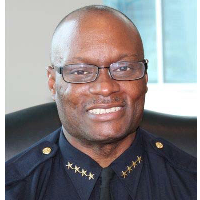Dallas Police Now Forced to Wait 3 Days before Recounting Shooting Incidents

Police officers in Dallas will now have the right to remain silent for three days following their participation in or witnessing of a police-related shooting.
The new department policy also allows officers to view any available video footage of the shooting before talking to investigators.
Before Police Chief David Brown made the change, officers were required to provide a statement within hours of the incident.
Now, officers who discharged their weapon are not allowed to speak about the incident until 72 hours have passed. And those who witnessed a shooting have the right wait that same amount of time before explaining what they saw.
“It is my belief that this decision will improve the investigation of our most critical incidents,” Brown said in an emailed statement to the Dallas Morning News.
It just so happens that the new policy comes less than a month after an officer was caught on tape shooting a mentally ill man, Bobby Bennett, without cause—which contradicted another officer’s testimony that led to a felony charge against the victim.
One of Bennett’s attorneys, Don Tittle, called the policy change “maddening.”
“If the goal is to seek the truth in an incident, then why would a witness to a police shooting be treated differently than a witness to any other incident?” he told the newspaper. “No other witness is told, here, you have three days to get back to us. And, by the way, here is a copy of all the video of the incident so you can get your story straight.”
At least one memory expert sided with the chief’s decision.
Alexis Artwohl, a behavior consultant who works with law enforcement agencies, said research reveals officers need rest before they can accurately recount traumatic events.
“They are not passive observers watching something from an easy chair,” she told the News. “They are at the scene where life-and-death decisions are being made, and they’re an integral part of it. So of course they are going to be impacted.”
“This whole memory claim, that somehow because of the stressful situation, their memories are faulty that may be true,” Tittle countered. “But why is it that their memories are always faulty in a way that covers for another police officer?”
-Noel Brinkerhoff
To Learn More:
Dallas Police Chief David Brown Quietly Changes Shooting Investigations Policy (by Tristan Hallman, Dallas Morning News)
Dallas Solution to Too Many Shoplifting Cases…Make them Harder to Report (by Noel Brinkerhoff and David Wallechinsky, AllGov)
Most Kansas City Nonfatal Shooting Victims Refuse to Cooperate with Police Investigation (by Noel Brinkerhoff and David Wallechinsky, AllGov)
Milwaukee Police Lowered Crime Rate…by Misreporting Violent Assaults (by Noel Brinkerhoff, AllGov)
- Top Stories
- Unusual News
- Where is the Money Going?
- Controversies
- U.S. and the World
- Appointments and Resignations
- Latest News
- Trump Deports JD Vance and His Wife
- Trump Offers to Return Alaska to Russia
- Musk and Trump Fire Members of Congress
- Trump Calls for Violent Street Demonstrations Against Himself
- Trump Changes Name of Republican Party






Comments